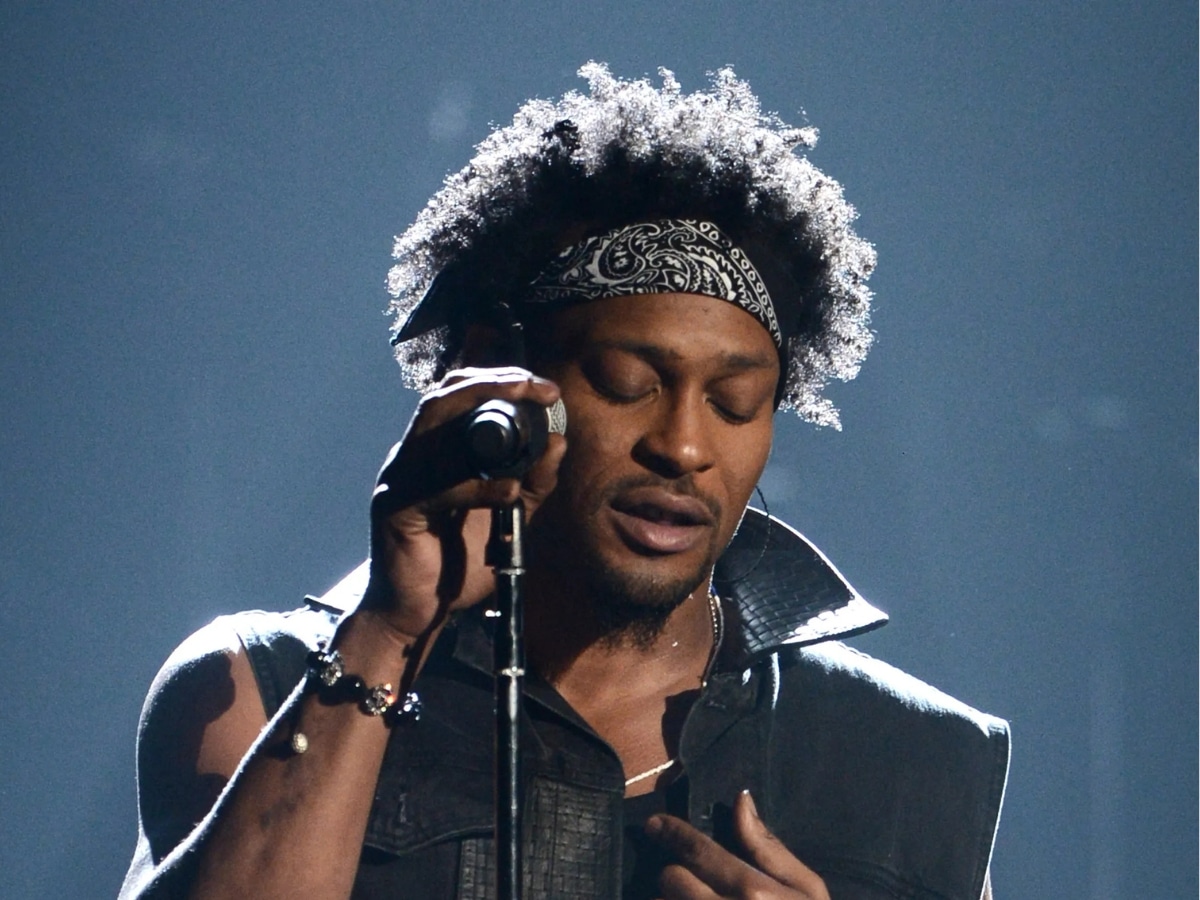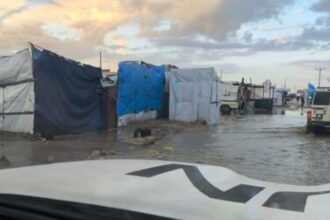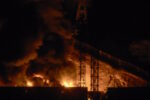During his 1979 New York Times interview with prolific writer John Romano, James Baldwin asserts his view of a writer’s purpose. “You write in order to change the world, knowing perfectly well that you probably can’t, but also knowing that literature is indispensable to the world,” he begins:
In some way, your aspirations and concern for a single man in fact do begin to change the world. The world changes according to the way people see it, and if you alter, even by a millimetre, the way a person looks or people look at reality, then you can change it.
In this light, Baldwin is referring to the power of a writer, a cultural worker, to change someone’s view, to move a canon — in this sense, the literary canon — forward, even marginally. The late Michael Eugene Archer, known formally to the world as the worldbuilder D’Angelo, is an irrefutable example of this praxis in and around music.
D’Angelo: instinctiveness around creation
D’Angelo was a nerd, the most endearing kind, both in his ascension, dominance, and unfortunate passing on Tuesday 14 October. It’s this studious approach to not only the production of his craft, but in how he spoke about the creation of the music once complete.
It’s an effortless, raw, authentic, and diligent form of archival research that flows from his lips with ease, his meticulous ambition to acquaint himself with what came before urgent — not as a task, nor labour, but as a hobby that’s almost instinctive.
Traces of this zest paints itself across the artist’s 2012 Finding The Funk interview with Nelson George. Navigating D’Angelo’s path to infatuation with funk was Prince’s Dirty Mind. Seven years old at the time, his mind inquired about the world before and amongst the singer’s third LP, eventually illuminating the discographies of James Brown, George Clinton, Parliament-Funkadelic, and the like. It was important for D’Angelo to find reason, meaning and context to such a founding arc of his musical influence and reference point.
But D’Angelo hasn’t passed over as a mere imitator; quite the contrary.
Innovation and community building
D’Angelo is one of the strongest examples of innovation, community building, and crafting evergreen, expansive universes that traverse time, that help to engulf the ear, enchant, and fundamentally sharpen its form of musical discovery.
Brown Sugar is amongst the finest displays of a debut album — ambitious, distinct, ethereal and ultimately boundary pushing. It’s here that D’Angelo emerges as one of neo-soul’s forebears, expanding what siloed genres like funk, soul, R&B, and hip-hop could be, crafting an equilibrium of endearingly messy collisions into a crescendo of passion, yearning and mystique.
Jonz In My Bonz, for example, primes itself on bohemian, lofi organ’s, atop slackened breakbeats. It’s one of the first songs that touched my younger millennial ear, in my teens, my curiosity for the singer’s one-of-a-kind musicality surfacing in real time. Fifteen years later, it as well as Brown Sugar don’t just hold up, but root themselves to the fabrics of musical history; they marked a turning point in time for him, and fellow Soulquairans like Bilal, Mos Def (now Yasiin Bey), Erykah Badu, and Common.
Often a recluse between albums, D’Angelo stood as an artist unafraid of reflecting and having a perspective of the times he lay in.
What he didn’t say in interviews, he put on wax.
Wedded to the truth
It’s a conviction and bonafide wedding to the truth that’s come to shape his legacy as a multi-dimensional talent of his time. It’s a component I cling tightly to in D’Angelo’s passing, as well. Obvious examples reveal themselves across VooDoo’s finale, Africa – D’Angelo placing emphasis on the transatlantic slave trade resulting in him being “far from home”. He advocates for knowledge being the answer, and perseverance, amongst his common themes of love.
But his potency, with age, really takes shape across his third album Black Messiah – calling out the role of the media and the plight of Black people. “Feet have bled a million miles we’ve walked,” he sings on The Charade, a psychedelic-tinged brand of rock guiding his way, emphasising the might of his message.
In his wake, I think back to Ivie Ani’s feature on the lack of protest music in the contemporary mainstream and how urgent it is in the state of the modern world — where Palestinian and Black bodies bleed, cities deteriorate due to AI, and fascism grows more pertinent than ever.
D’Angelo’s growth as an artist sharpened his tongue, loosened his groove and facilitated both the harsher truths, in-and-amongst his foundation of romance. He fiercely stood in his own reality but contextualised that atop his worldview.
Leaving a legacy
It’s why peers of his like Yasiin Bey are still cited as changemakers, the latter of which made an equally as political LP Blacker On Both Sides at the turn of a millennium. Successors like Kendrick Lamar have indeed ushered up seismic audios — the rapper candidly speaking to political advocacy on To Pimp A Butterfly (as well as wider works) — but there’s a dearth in apex-level, consistently-transparent assertions of the world, true ruminations, and opposition, even amongst the petitions, concerts, and calculated social media comments.
“Who didn’t wanna be D’Angelo?” R&B singer Miguel told the Associated Press on 14 October. Looking at the landscape of music, both in D’Angelo’s direct succession and now, you see his modus operandi omnipresent in music.
Peers, even slightly left of his neo-soul parameters like R&B’s Brandy, would go on to similarly change fabrics of her origin genre with her album Full Moon. It is now a hallmark release by new age singers like Destin Conrad and Kehlani in vocal stacking and avant-garde, unorthodox takes on the genre. Brandy, who had strong aspirations to work with D’Angelo, shared a similar ethos of expanding canons, and worldbuilding.
In his direct lineage, however, stand the likes of H.E.R., SiR, Ro James, Ari Lennox, Elmiene, and Rasharn Powell – carrying his sensibilities, distortion, and dreamscapes. Take Ari Lennox’s POF, for instance — its murky brand of soul, funk, R&B, and jazz a blended reality. It’s this eco-system, one that’s been meticulously nurtured since the mid-90’s, that’s so important to protect and preserve.
D’Angelo’s legacy must move forward in all of us
Thirty years after D’Angelo’s debut, I’m left wanting these artists, and indeed artists at large, to push themselves.
To be clear, mainstream-level artists.
It’s critical, as prolific producers like Timbaland look to sanitise human creation in music. In a parasitic political and creative climate, the humans at the helm – who still have the autonomy to create – should take notes from D’Angelo, Baldwin, and Brandy, and shift that dial a little further; rock the boat — no pun intended — and shape new realms.
I think of the turn of the 2010s, and the ambition of a then rising class of “alternative musicians” like Jhene Aiko, Tinashe, Miguel, Frank Ocean, The Weeknd.
I, by no means, am saying this isn’t happening now, but algorithms are influencing cultural production and AI is tempting new-age talent to short cuts.
In his passing, I hope that D’Angelo’s discipline is archived as a hallmark; a quintessential footnote in any artist traversing neo-soul, R&B, or any genre and their storytelling in-and-around music for that matter. Research, ambition and forward-facing execution.
Once the tributes settle, and the world moves on — it always does — the legacy of exploration and audacity must move forward in each and every one of us.
Whether a step, walk, or indeed a leap forward, movement in this terrain can and will do much to change the reality around us, and provide hope in what pastures anew could be.
Featured image via the Canary













